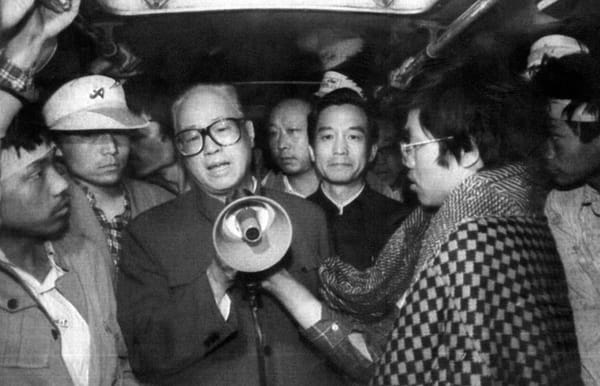The American Internment
Franklin D. Rosevelt's imprisonment of Americans citizens during World War II was one of the most reprehensible abuses of individual rights to ever occur on American soil.

During World War II, the acts perpetrated by the United States Government in the internment of American citizens were reprehensible and undeniably criminal in nature and should never be repeated in the future, regardless of any episode of mass public hysteria which pressures the demagogues in power to do so.
Franklin D. Rosevelt is among the worst presidents in the history of the United States. Although, “president” is not a fitting term for FDR, a man who felt it morally justified to abolish individual rights in order to serve “the common good.” Likewise, Hitler, Stalin, and Mao all promised to rule for “the common good” at the expense of the individual.
The policy of internment is a particularly egregious example of the complete indifference FDR held towards the Constitution. FDR’s executive order imprisoned citizens and non-citizens of Japanese descent without due process under the premise that some may be loyal to Japan. In other words, FDR illegally imprisoned individuals simply because they were members of a group, a group which had no intrinsic loyalty to Japan simply because the individuals within it were members of a particular racial group.
None of these individuals were given a trial and their property was expropriated. The fact that Japanese Americans had their rights violated is indisputable. However, some argue that their imprisonment was necessary for “the common good." One must consider that principle that:
[...] the violation of an individual’s rights means the abrogation of all rights, it delivers the helpless majority into the power of any gang that proclaims itself to be “the voice of society” and proceeds to rule by means of physical force, until deposed by another gang employing the same means
— Ayn Rand
Once the majority accepts the notion that it is okay to sacrifice a minority for the percived good of the the collective, they have unwittingly conceded that their own rights are not absolute and are subject to revocation by the whims of those in power. One who defends America's policy of internment is ultimately acting in self-destruction; it is in the self-intrest of all men to condemn polices which sacrifice the indivual to the collective. Failing to do so further perpeturates the myth that rights are not inalienable but rather a matter of public vote.
FDR’s legacy is one of moral depravity. His polices, such as Japanese internment and the New Deal, took ill-conceived action to produce short term results without an ounce of consideration for whose rights must be infringed upon to achieve them. The Democratic party has held this attitude for a long time, however, the Republican party is no longer immune from this cancerous school of thought—especially after the Trump era. In order to enter the next age of Freedom, America needs leadership who recognizes the immutability of individual rights and is willing to fight for the equal application thereof.




